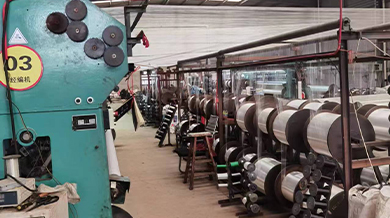-
 Afrikaans
Afrikaans -
 Albanian
Albanian -
 Amharic
Amharic -
 Arabic
Arabic -
 Armenian
Armenian -
 Azerbaijani
Azerbaijani -
 Basque
Basque -
 Belarusian
Belarusian -
 Bengali
Bengali -
 Bosnian
Bosnian -
 Bulgarian
Bulgarian -
 Catalan
Catalan -
 Cebuano
Cebuano -
 China
China -
 Corsican
Corsican -
 Croatian
Croatian -
 Czech
Czech -
 Danish
Danish -
 Dutch
Dutch -
 English
English -
 Esperanto
Esperanto -
 Estonian
Estonian -
 Finnish
Finnish -
 French
French -
 Frisian
Frisian -
 Galician
Galician -
 Georgian
Georgian -
 German
German -
 Greek
Greek -
 Gujarati
Gujarati -
 Haitian Creole
Haitian Creole -
 hausa
hausa -
 hawaiian
hawaiian -
 Hebrew
Hebrew -
 Hindi
Hindi -
 Miao
Miao -
 Hungarian
Hungarian -
 Icelandic
Icelandic -
 igbo
igbo -
 Indonesian
Indonesian -
 irish
irish -
 Italian
Italian -
 Japanese
Japanese -
 Javanese
Javanese -
 Kannada
Kannada -
 kazakh
kazakh -
 Khmer
Khmer -
 Rwandese
Rwandese -
 Korean
Korean -
 Kurdish
Kurdish -
 Kyrgyz
Kyrgyz -
 Lao
Lao -
 Latin
Latin -
 Latvian
Latvian -
 Lithuanian
Lithuanian -
 Luxembourgish
Luxembourgish -
 Macedonian
Macedonian -
 Malgashi
Malgashi -
 Malay
Malay -
 Malayalam
Malayalam -
 Maltese
Maltese -
 Maori
Maori -
 Marathi
Marathi -
 Mongolian
Mongolian -
 Myanmar
Myanmar -
 Nepali
Nepali -
 Norwegian
Norwegian -
 Norwegian
Norwegian -
 Occitan
Occitan -
 Pashto
Pashto -
 Persian
Persian -
 Polish
Polish -
 Portuguese
Portuguese -
 Punjabi
Punjabi -
 Romanian
Romanian -
 Russian
Russian -
 Samoan
Samoan -
 Scottish Gaelic
Scottish Gaelic -
 Serbian
Serbian -
 Sesotho
Sesotho -
 Shona
Shona -
 Sindhi
Sindhi -
 Sinhala
Sinhala -
 Slovak
Slovak -
 Slovenian
Slovenian -
 Somali
Somali -
 Spanish
Spanish -
 Sundanese
Sundanese -
 Swahili
Swahili -
 Swedish
Swedish -
 Tagalog
Tagalog -
 Tajik
Tajik -
 Tamil
Tamil -
 Tatar
Tatar -
 Telugu
Telugu -
 Thai
Thai -
 Turkish
Turkish -
 Turkmen
Turkmen -
 Ukrainian
Ukrainian -
 Urdu
Urdu -
 Uighur
Uighur -
 Uzbek
Uzbek -
 Vietnamese
Vietnamese -
 Welsh
Welsh -
 Bantu
Bantu -
 Yiddish
Yiddish -
 Yoruba
Yoruba -
 Zulu
Zulu
Durable Plastic Chicken Wire Mesh for Secure Poultry Enclosures and Garden Protection Solutions
The Versatility of Plastic Chicken Wire Mesh
Plastic chicken wire mesh, often simply referred to as plastic mesh, is an innovative product that has revolutionized various industries, particularly in agriculture, gardening, and construction. Unlike traditional metal chicken wire, which can rust, corrode, or become brittle over time, plastic chicken wire offers a multitude of benefits that enhance its usability and longevity. This article delves into the characteristics, applications, and advantages of plastic chicken wire mesh.
Characteristics of Plastic Chicken Wire Mesh
Plastic chicken wire mesh is typically made from high-density polyethylene (HDPE) or polypropylene. These materials are known for their strength, durability, and resistance to environmental factors such as moisture, UV rays, and harsh chemicals. The mesh is available in various sizes, openings, and colors, making it highly customizable to suit specific needs. Its lightweight nature makes it easy to handle and install, further adding to its appeal.
Applications in Agriculture
In agriculture, plastic chicken wire mesh is extensively used in poultry farming to create enclosures for chickens and other small livestock. The plastic mesh provides a barrier that protects animals from predators while allowing for adequate ventilation and sunlight. Unlike metal wire, plastic chicken wire does not have sharp edges, reducing the risk of injury to the animals.
Furthermore, plastic chicken wire mesh can be employed to protect vegetable gardens from pests
. By surrounding plants with this mesh, gardeners can deter birds and small animals without impeding the growth of plants. Additionally, the mesh is effective for creating compost bins, supporting climbing plants, or controlling soil erosion in garden beds.plastic chicken wire mesh

Construction and Building
In the construction industry, plastic chicken wire mesh serves diverse purposes. It can be used as a temporary barrier on construction sites to keep people away from hazardous areas. Its lightweight and non-corrosive properties make it suitable for various applications, including scaffolding, fencing, and as a support material in plastering.
The mesh can also be employed in landscape design. When creating walkways or garden features, plastic chicken wire can help stabilize soil while still allowing for drainage. In these applications, its aesthetic appeal can be enhanced with paint or by integrating it into the landscape design seamlessly.
Environmental Benefits
One of the significant advantages of plastic chicken wire mesh is its environmental impact. The materials used in its production are often recyclable, contributing to a more sustainable approach to construction and agricultural practices. Unlike metal wire, which can contribute to rust contamination in soil, plastic mesh is inert and can safely decompose in the environment under ideal conditions.
Conclusion
Plastic chicken wire mesh stands out as a versatile, durable, and practical solution for various industries, particularly agriculture and construction. Its suitability for multiple applications, combined with its lightweight and environmentally friendly attributes, positions it as a preferred choice over traditional metal wire. Whether protecting livestock, supporting plant growth, or enhancing construction safety, plastic chicken wire mesh proves to be an invaluable asset. As we continue to seek sustainable practices in various sectors, the role of plastic chicken wire mesh is likely to grow even more prominent in the years ahead.
-
Shipping Plastic Bags for Every NeedNewsJul.24,2025
-
Safety Netting: Your Shield in ConstructionNewsJul.24,2025
-
Plastic Mesh Netting for Everyday UseNewsJul.24,2025
-
Nylon Netting for Every UseNewsJul.24,2025
-
Mesh Breeder Box for Fish TanksNewsJul.24,2025
-
Expanded Steel Mesh Offers Durable VersatilityNewsJul.24,2025











